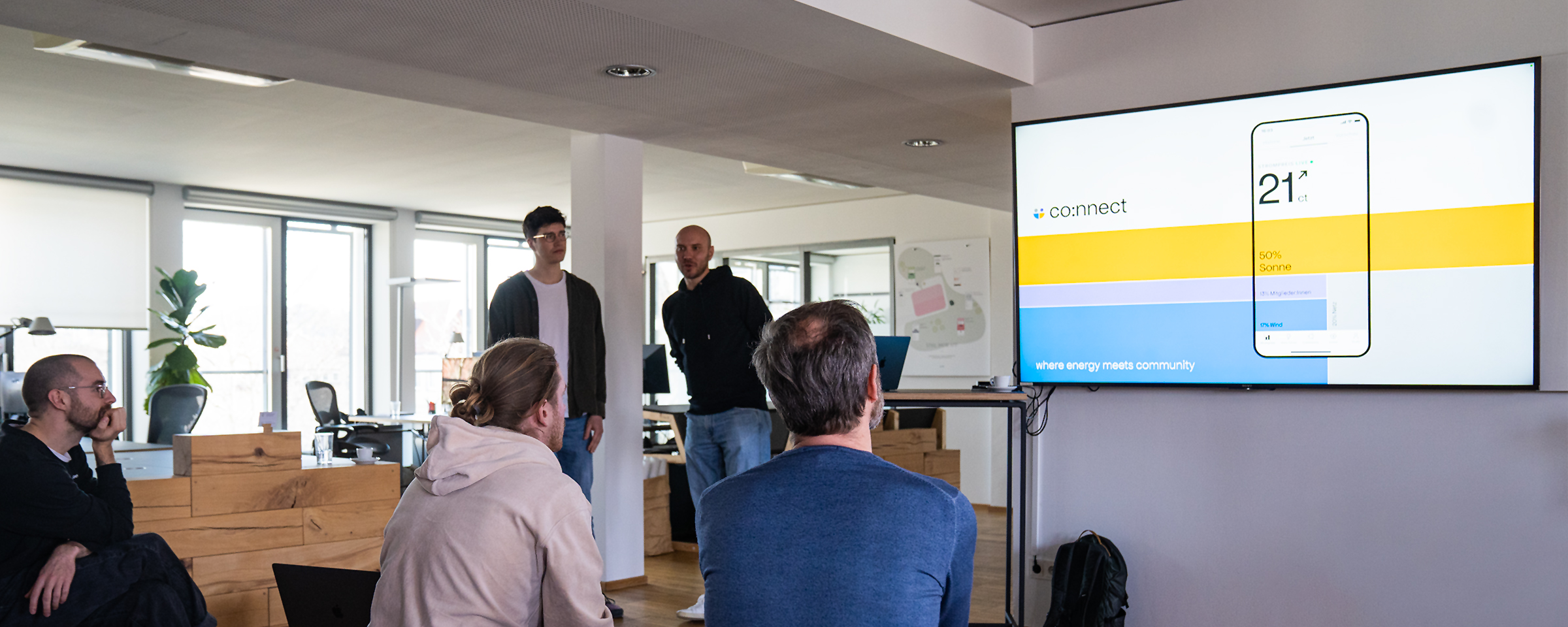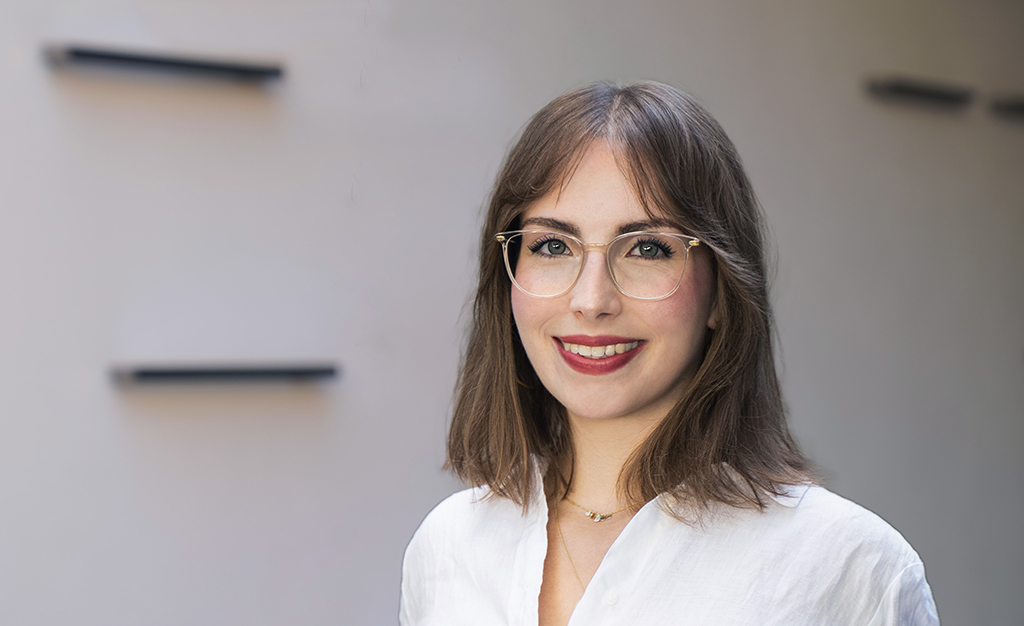Expertise
About us

Lab Talk: How can citizens actively participate in the growth of renewable energies?

At Intuity, we accompany our customers from centralized energy supply to a decentralized renewable energy ecosystem. We explore and shape new fields of opportunity for connected business models, services and partnerships.
The relevance of citizen participation models for the German government's target by 2030 is beyond question. In addition to technical implementation and hurdles in the approval process, the challenges for regional implementation lie at the socioeconomic level.
This is where the co:nnect concept by Tobias Ertel, Pius Burkhart and Florens Schwendowius comes in, enabling citizens to participate more easily in energy communities and thus accelerating the regional expansion of renewable energy. Through the digital platform, members of an energy community can invest in renewable energy expansion projects. The locally generated green electricity from community-financed plants is shared and used within the energy community, and fed into the grid when there is a surplus.
With their project, Tobias, Pius and Florens show how a decentralized energy transition can succeed in the hands of citizens. It was impressive to see how deeply they delved into the subject during their bachelor thesis.
Although the course for energy sharing was already set in 2018 with the Renewable Energy Directive (RED II), there are still numerous unanswered questions to make energy communities happen:
- What are the prerequisites, and which stakeholders must be brought on board?
- What added value and incentives must be created to lower the barriers to entry and inspire citizens?
- What happens to legacy assets? (old energy facilities)
- To what extent does the responsibility of the product life cycle lie within the Energy Communities? Can recycling become part of the concept?
Thank you, Florens and Tobias, for the exciting and inspiring exchange on this important topic. It was a pleasure!